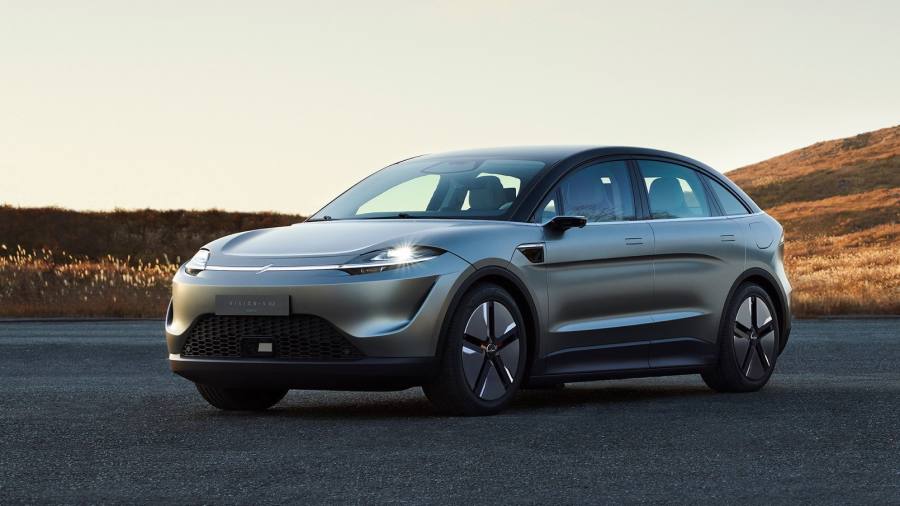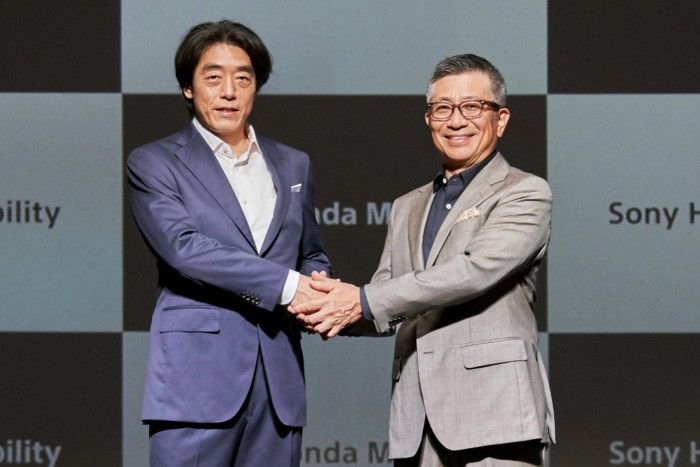
Sony and Honda plan to use music, movies and the PlayStation 5 to take on Tesla and the rest of the automotive industry by developing an electric car built around a premium entertainment experience.
The heads of Sony Honda Mobility, which was established in September and has yet to choose a brand name, told the Financial Times that the company plans to gain an edge over competitors by leveraging Sony’s powerful position in the global entertainment industry.
“Sony has content, services and entertainment technologies that move people. We are adapting these assets to mobility, and this is our strength against Tesla,” said president Izumi Kawanishi, who has headed Sony’s AI robotics business.
“Tesla is not providing any content services,” he said, adding that integrating the PlayStation 5 platform into their cars was “technologically possible”.
Yasuhide Mizuno, chair of the joint venture and who was in charge of Honda’s cars division, said the company was even adapting the car production process to put content first.
Instead of inserting software after a car is produced, “we will develop a car as hardware that will cater to the entertainment and network we would like to offer”, said Mizuno. He said the company planned to roll out its first electric vehicle model in North America by 2025.

The comments by the joint venture heads show how companies are working to adapt to shifting consumer preferences in cars.
As well as attempting to mount an entertainment-based challenge to Tesla, the Sony-Honda car will aim to compete with similarly software-focused vehicles produced by Google and Apple.
But Kawanishi said the joint venture would also concentrate on perfecting a fully self-driving car — a target that some mobility companies, including Uber and Google, have either abandoned or significantly pushed back as challenges and expenses have mounted.
Argo AI, a self-driving vehicle group jointly backed by Ford and Volkswagen, announced last month it would shut down operations, saying profitability was “a long way out”.
“To enjoy the space in your car, you have to make it a space where you don’t need to drive. The solution for this is autonomous driving,” said Kawanishi, an engineer who has developed PlayStation 3 and robot dog Aibo at Sony.
“Autonomous driving will have to evolve considerably from the current level to get to that point, and it will take time for that to happen,” he added, saying that ultimately the company was aiming for fully driverless autonomy.
Some analysts believe that the grand ambitions of the Sony-Honda joint venture mask a simpler set of business goals: to use the car as a showcase for technologies and software platforms that other global carmakers might want to install in their vehicles.
For Sony, “a part of the goal is to sell more components, including sensors, to establish a foothold for the consumer electronics industry in the auto industry,” said Christopher Richter, analyst at CLSA.
“Tesla hasn’t been able to completely achieve this, and the JV has done it much faster than Apple’s [EV] Project Titan, which is still languishing somewhere.”
The electronics group wants to show what it is capable of by developing a small-scale premium brand with Honda, Richter added.